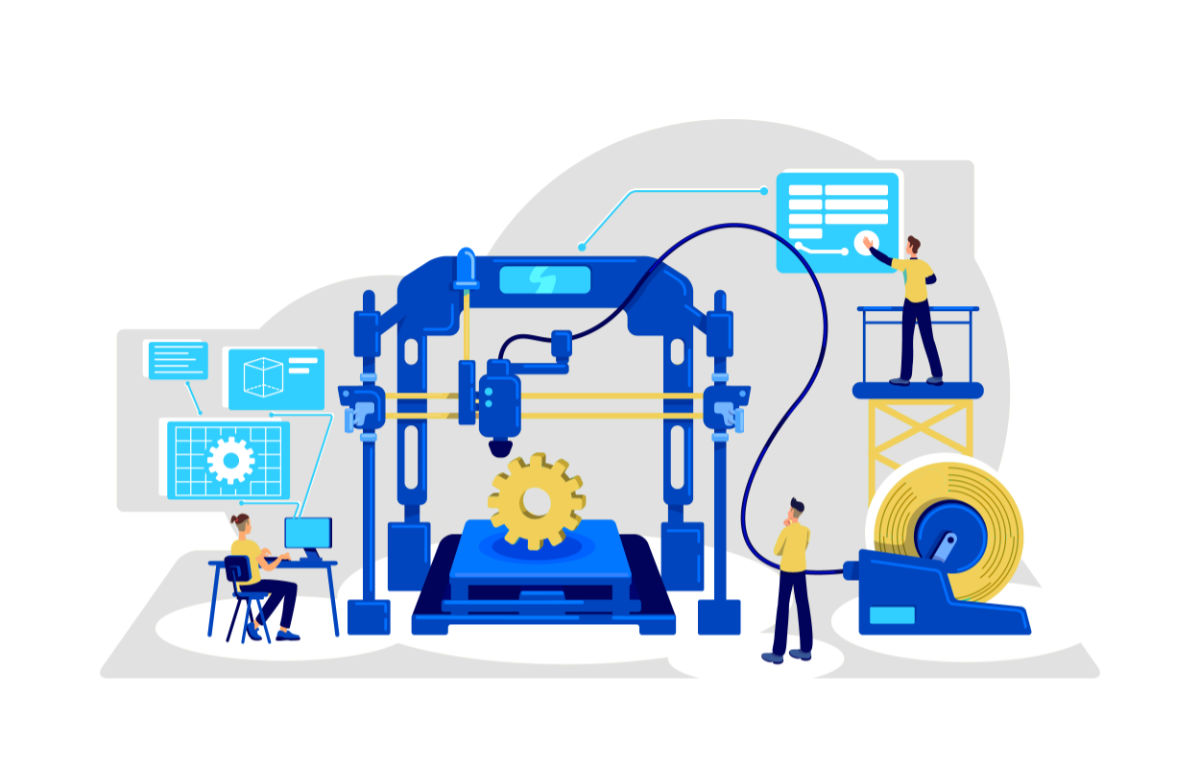What is a Manufacturing Execution System (MES)?

Manufacturing Execution System (MES) is a comprehensive information system used to manage and optimize manufacturing processes. This system allows monitoring, controlling and analyzing all activities on the production line. While traditional production methods involve manual and time-consuming processes, MES digitizes these processes and makes them more efficient.
Definition of MES
MES is an integrated information system used to manage and optimize production processes in real time. This system monitors all activities on the production line, collects and analyzes data and uses this information to improve processes. MES covers a wide range of manufacturing activities, from material flow to labor management, equipment performance to quality control. This enables production processes to become more efficient, flexible and transparent.
Components of MES
Production Planning and Scheduling
MES is used to optimize production planning and scheduling processes. This system ensures the most efficient use of all resources (labor, materials, equipment, etc.) on the production line. Production planning determines which products will be produced, when and how, while scheduling makes the timing of these plans. MES automates these processes and ensures continuous and uninterrupted operation of the production line.
Data Collection and Monitoring
MES monitors all activities in the production process in real time and collects data. This data is used to evaluate the performance and efficiency of each stage in the production line. MES collects and analyzes critical data such as machine performance, labor productivity, material utilization and quality control. In this way, potential problems can be identified at an early stage and necessary measures can be taken.
Quality Management
MES is used to manage and improve quality control processes. It monitors the compliance of each stage in the production line with quality standards and records this data. MES automates quality control tests and analyzes the results. This ensures the maintenance of quality standards and continuous improvement in production processes. Quality management is critical to increase customer satisfaction and reduce product defects.
Equipment Management
MES monitors and manages the performance of equipment on the production line. Equipment operating status, maintenance requirements and performance data are recorded by MES. This data is analyzed to ensure that equipment is used effectively and efficiently. MES detects equipment failures in advance and plans maintenance operations. This minimizes interruptions and downtime on the production line.
Advantages of MES
Productivity Increase
MES increases efficiency by optimizing production processes. Real-time monitoring and management of all activities on the production line enables processes to become more effective and efficient. MES ensures the most efficient use of resources (labor, materials, equipment). This reduces production costs and increases production speed. Productivity growth helps businesses gain competitive advantage and increase profitability.
Quality Improvement
MES improves quality control processes and increases product quality. Monitors the compliance of each stage in the production line with quality standards and analyzes this data. MES detects quality problems at an early stage and takes necessary measures. This reduces product defects and customer complaints. Quality improvement increases customer satisfaction and strengthens the reputation of the business.
Flexibility and Adaptation
MES enables flexibility and adaptability in production processes. It adapts quickly and effectively to changes in the production line. MES dynamically updates production plans and schedules and reflects these changes on the production line. In this way, businesses can respond quickly to changing market conditions and customer demands. Flexibility and adaptability help businesses maintain their competitive advantage.
Cost Savings
MES provides cost savings to businesses by reducing production costs. Increased productivity and quality improvement reduce production costs. MES ensures the most efficient use of resources and prevents unnecessary expenditures. Furthermore, preventing equipment failures and production interruptions reduces maintenance and repair costs. Cost savings increase the profitability of businesses and provide competitive advantage.
Transparency and Traceability
MES provides transparency and traceability in production processes. Digital recording of all production activities makes it possible to monitor and analyze processes. MES provides critical data to evaluate the performance and efficiency of each stage in the production line. This data helps businesses make more informed and strategic decisions. Transparency and traceability increase the credibility of businesses in the supply chain and build customer trust.
MES Application Areas
Automotive Industry
MES is a widely used system in the automotive industry. Automotive manufacturing processes involve complex and high-precision operations. MES helps to optimize these processes and increase efficiency. Automotive production lines use MES for a wide range of tasks, from material flow to assembly operations, from quality control to equipment management. This enables automotive manufacturers to produce high-quality and cost-effective products.
Electronics and Semiconductor Manufacturing
MES also plays a critical role in electronics and semiconductor manufacturing. In this industry, production processes are highly precise and complex. MES enables these processes to be monitored and managed. In electronics and semiconductor manufacturing, critical data such as material usage, labor productivity, quality control and equipment performance are collected and analyzed by MES. This optimizes production processes and improves product quality.
Food and Beverage Industry
MES is also widely used in the food and beverage industry. In this industry, production processes require strict quality control and traceability. MES monitors and manages all activities on food and beverage production lines. Processes such as material traceability, quality control testing, production planning and scheduling are automated and optimized by MES. This enables food and beverage manufacturers to produce high quality and safe products.
The Future of MES
MES is becoming even more important with the rapid advancement of industrial digitalization. New technologies such as Industry 4.0, IoT (Internet of Things), artificial intelligence and big data analytics will enable MES systems to develop further. These technologies will make it possible for production processes to become more intelligent, flexible and efficient. In the future, MES systems will continue to play a critical role in automating and optimizing production processes.
Industry 4.0 and IoT
Industry 4.0 and IoT will play an important role in the future of MES systems. These technologies enable the interconnection of all devices and systems in production processes. IoT sensors monitor and collect data in real time on the performance and efficiency of each stage in the production line. By analyzing this data, Industry 4.0 optimizes production processes and enables smart decisions. MES integrates with these technologies to create smarter and more flexible production systems.
Artificial Intelligence and Big Data
Artificial intelligence and big data analytics enable MES systems to make more intelligent and data-driven decisions. By analyzing data from production processes, artificial intelligence detects potential problems at an early stage and offers optimizing solutions. Big data analytics, on the other hand, analyzes large data sets in production processes and uses this data to improve processes. Artificial intelligence and big data will play an important role in the future of MES systems.
A Manufacturing Execution System (MES) is an integrated information system used to manage and optimize production processes in real time. It offers many advantages such as increased productivity, quality improvement, flexibility and adaptability, cost savings and transparency. MES consists of components such as production planning and scheduling, data collection and monitoring, quality management and equipment management and has a wide range of applications in various industries. In the future, MES will continue to play a critical role in production processes, further enhanced by technologies such as Industry 4.0, IoT, artificial intelligence and big data analytics. By utilizing these advantages offered by MES, businesses can increase their competitive advantages and ensure sustainability and efficiency in their production processes. This will be an important strategy that increases the success and profitability of businesses in the long term.

Previous Post
What is Six Sigma and How is it Applied?
Next Post
What is Electronic Supply Chain Management (e-Sourcing)?






